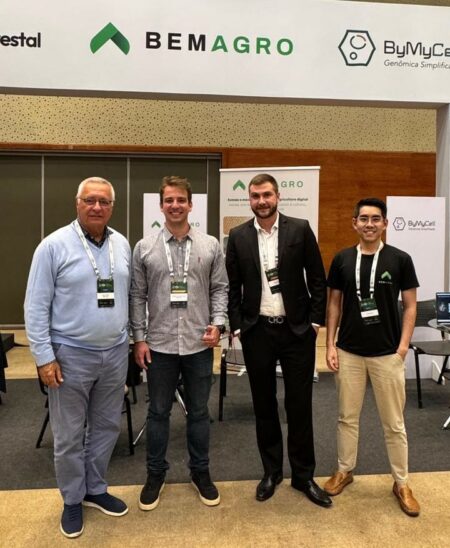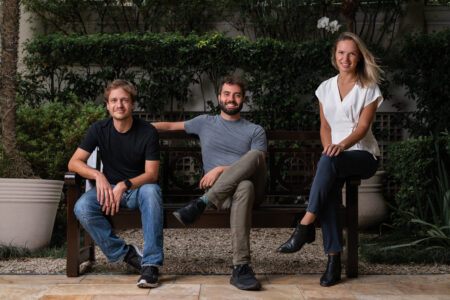Neste momento, está em andamento outra edição do meetup BR New Tech (também em São Paulo, mas desta vez no auditório da Microsoft – que ficou completamente lotado).
Começou com um painel de investidores; seguido de anúncios da bolsa de estudos Call to Innovation (Singularity University) e da Cartier Women’s Initiative Awards; e pitches de 3 startups.
Sobre as startups, falarei depois, com mais propriedade – estou gravando em áudio, pretendo disponibilizar. Compartilho agora algumas frases das falas de cada investidor:
- Eric Acher (Monashees Capital): Venture Capital is about alignment between the entrepreneur and the investor. What we need is success stories! the right mindset on both sides. entrepreneurs studying what early stage investment is, and local investors learning, too. We are learning fast. a lot of transfer of knowledge. You have to see if your product and business model is purely virtual, to immediately global, or if you need a local salesforce. You don’t see a lot of long-term commitment yet, but foreign investors are coming taste the water. Don’t look just to the bad side, problem solving is part of the entrepreneur. Entrepreneurs and investors need to be optimistic. The conditions in Brazil now are very favorable.
- Amit Garg (Norwest Venture Partners): Local partners having local knowledge. We believe in the same about Brazil, we’d like to partner with everyone of you here. You have to be aware of what entrepreneurs are doing around the world. You should Brazil be proud Brazil is so big. Why can you not build companies that grow in other countries? Infrastructure in India is a nightmare. in China you have to be able to manage contacts with government; Brasil has the rule of the law, we have everything. we just need people to to more education, more engineering, more encouragement to build the ecosystem. There needs to be partnership between government and private initiative, like in Israel. we cannot depend on just one of them. I know some people in Brazil, and when I look to their stories, I believe it’s possible. There are many people connecting the ecosystem. And, trust risk, as in the US: you’re not an entrepreneur while you didn’t fail twice!
- Martino Bagini (Astella Investimentos): a lot of change going on, many stand points. regarding probe most folks here, the early stage is changing, and that’s all we care about. some don’t want to appear as investors. it’s changing a lot and rapidly. we believe exits will be very better, but still bad. liquidity is changing, it’s still al ong way to go, but it’s improving. we have to be able to find entrepreneurs who are very flexible. Some good entrepreneurs suffer because they don’t understand the investment cycles. I’d say to entrepreneurs here: work, work, work. Fail quick. Don’t give up. Even competitors are open to discuss their business models. And don’t look to investors only as money, but as appropriate partners to grow together.
- Geoffrey Prentice (Atomico Ventures): entrepreneurs focus on building huge businesses, not investment and such financial stuff. just sit down and focus on building a business. China and Russia have really bad demographics. We should start shooting for the moon. So much positivity in Brazil right now.
- Simon Olson (ex-Fir Capital): it’s becoming cool to be an angel investors, thanks a lot, we need them. what we are discussing is the importance of the ecosystem becoming mature, huge, needing more money. We need more socialnomics! at Microsoft USA, for example, there are many stories that the lowest employees get very rich from the stock options. In Brazil, people live at parents’ home until marriage, they don’t move for university. so then, when it’s up for them to pick up a job, it’s more like a family decision to choose the big corporation. in the US, it’s more common that people leave home to study, and they choose startups more often. We need to overcome traditions! We learned that we get very high valuations if we insert corporate governance, etc. I’m afraid because the local ecosystem and market is going, like, from zero to two hundred! There’s a lot of money, attention, expectations. I wish it were gradual, so we could avoid contamination.


